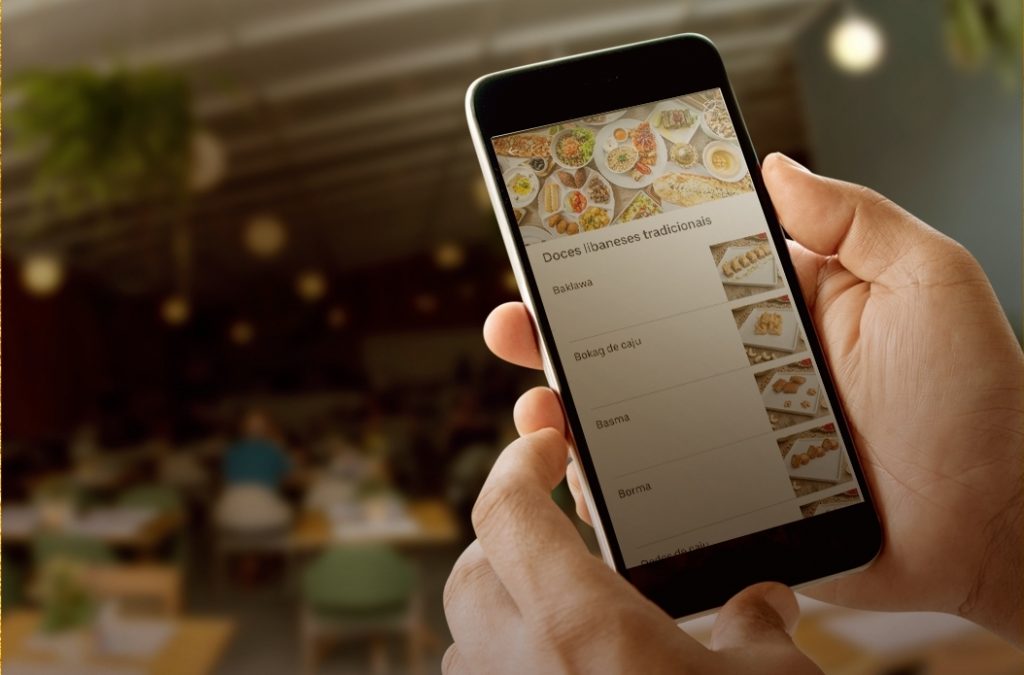São Paulo – Over 80 kinds of Arab sweets to choose from at one single shop in São Paulo. And the ingredients are not the only thing sourced from the Middle East at Alyah Sweets. According to the restaurant and pastry shop’s commercial director, Issam Sidom, more than ten people in the staff came straight from Lebanon to bake the goods. The place opened last November, the brainchild of a group of Lebanese entrepreneurs who were in the food business back in Lebanon, and it has shareholders in Brazil. Sidom is the son to Lebanese parents, and here in São Paulo he takes part in the decision-making for the Arab group’s first venture in Brazil.
Sidom explains that the strategies and approach to doing business is all Arab-like. “Our concept is to be the best Arab patisserie in Brazil. What did we do? We brought pastry chefs in from Lebanon, from Hallab, the best delicatessen in the Middle East, plus a chef who runs the whole show – both the restaurant and the pastry section. We gave them freedom. We want the best product. We do not meddle with their choices. They can do whatever they like. Our ingredients come from Lebanon, in the Middle East,” he explained.
The owners’ knack for business has proved handy in at least one aspect amid the Covid-19 pandemic. “Everything we buy, we buy in large amounts of. Right now, for instance, we have over 10 shops’ worth of inventory, and this has really helped us through this crisis. Thank God, we’ve only been buying the bare minimum. When you have product in store and demand is going strong, it’s no good to be depending on suppliers all the time. And by ordering large amounts you get better pricing. The secret’s in the buying, not the selling,” he said.
Alyah Sweets comprises two areas. The restaurant, which serves lunch and savory snacks like sfiha and shawarma, and the shop, which is open 8:30 am to 11 pm. To get to the staggering 80 types of sweets, the chefs mix and match the fillings in their recipes. “The baklava alone has three or four different flavors: guava, pistachio, nuts, dates. People enjoy these mixes,” he explained.
The bulk of ingredients comes from Lebanon and Syria, and some of it’s from Turkey. Other items are imported from non-Arab countries, such as ghee from France. Sidom believes the secret to the dishes is not just the flavor, but also the atmosphere that transports patrons to Lebanon. “The shop has a new concept, like a bakery-cum-restaurant. Our chairs, our tables, our silverware. Everything’s flawless. You need to feel like you’re in Lebanon. The aroma brings back your grandmother’s and mother’s sfihas,” he said.
With all stores shut down to slow the spread of Covid-19, the solution was takeout and delivery – and so far the former is paying better than the latter. “Places that didn’t get ready to deliver will struggle in the beginning. Delivery isn’t your best bet right now. Everybody was expecting the shutdown to not last long. Everything’s kind of uncertain,” he says.
And being business savvy also comes in handy in overcoming the crisis, Sidom explains. Customers can get promos and combos. “We’ve lowered our prices. We’re giving 50% in delivery apps. The app will charge as much as 23%, plus taxes, plus packaging… We were spending more than we were making, but we focus on both the workers and the customers. Material things are easy to get back if you lose them, but if you lose your workers and your customers, it’s all over. We found a way to keep our staff and our customers. Our human assets are our priority,” he said.
The idea of staying alive in customers’ minds and thus be able to pay employees’ salaries is working out so far. According to Sidom, bloggers and influencers are recommending dishes and pastry from Alyah Sweets. “The people have been really humane, not only the Arabs, but also the Brazilians. That was really cool. Spontaneous publicity makes you want to work harder! And we even had staff doing a prayer chain to enlighten us, so we’d know how to go about our work. We’re trying not to send anyone away,” he said.
And the company also reached out to its suppliers to, once again, negotiate. “They’ve all been great partners. We never paid a late bill. Not a single one of them refused to help us out. The people all got along,” said Sidom.
The Lebanese descendent also draws his strength from the life stories of his ancestors. “Our parents moved [to Brazil] and they were traveling salespersons. They’d go out on the street and sell bed, bath and linen. And even if we need to go back to that, that’s still ok. Mine is the coolest deli there is, but my customers are your everyday people. I guess keeping the staff is our biggest challenge,” he said.
Translated by Gabriel Pomerancblum








